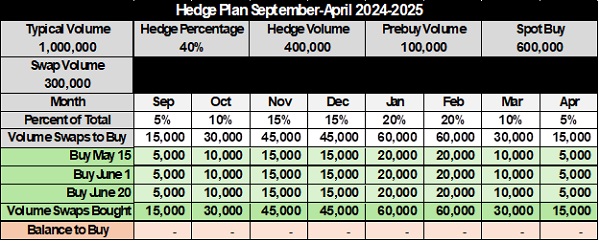Online training makes propane education more attainable

Propane University Online LPG Training Services offers industry training year-round for propane retailers. iStock.com/merznatalia
Online classes sometimes get the bad reputation of being somewhat monotonous, but when Mike DiGiorgio developed Propane University Online LPG Training Services almost two years ago, he hoped to create an online classroom that wouldn’t lull students to sleep.
He says it’s become his goal to bring excitement to online training in the propane industry.
“I saw a need to make training more accessible and affordable to small- and mid-sized gas companies,” he says. “Typically smaller companies want to train, but sometimes they can’t travel long distances for training. I saw that struggle and decided we needed to make an online training course that’s easy, affordable and fun.”
Propane University Online Training Services offers a variety of online classes year-round to educate propane retailers and to prepare them for formal Certified Employee Training Program (CETP) certification with the National Propane Gas Association (NPGA). Classes cover topics such as Department of Transportation (DOT) training, Occupational Safety & Health Administration (OSHA) training and CETP training. All classes range in length from about two to 12 hours.
Since DiGiorgio’s classroom model is only available online, he uses a soundboard filled with noises one might hear in the background of a 1990s sitcom to keep students awake. For example, if a student makes an intriguing comment, DiGiorgio will hit an applause button. It’s a little unusual, but he adds that it keeps his students intrigued.
Unlike most online classes, which tend to be faceless, DiGiorgio requires his attendees to have a webcam and audio tools on their computers so that he can see his students and his students can see one another.
“I call it a virtual training room,” he says. “The online course almost looks like you’re in a classroom, as you can see and hear each other.”
DiGiorgio shares materials developed by NPGA and the Propane Education & Research Council (PERC) in his sessions. DiGiorgio met with Stuart Flatow, PERC’s vice president of safety and training, this spring to discuss his educational format. While Flatow thinks retailers should also attend in-person training, he says DiGiorgio’s class is beneficial to the industry.
“Using information technology for training is great,” Flatow says. “We applaud [DiGiorgio] for it because at the end of the day, he’s getting people in our industry trained using PERC materials.”
Flatow and DiGiorgio believe online training serves as a great alternative for retailers. They say retailers sometimes can’t commit to multiple-day in-person training sessions. Online training, Flatow adds, can help to reduce the time the retailer is traveling for an in-person session. He says PERC has also been introducing more e-learning options, such as its CETP blended learning concept.
Although Propane University Online Training Services is a newer service, it has trained about 120 people using NPGA and PERC materials. DiGiorgio says his courses are offered throughout the year, in case a retailer misses state association training sessions in the summer.
“Our goal is to allow and help more of the industry get training at an affordable rate,” DiGiorgio adds. “Our goal is also to be an asset to state association training in any way, shape or form.”
















